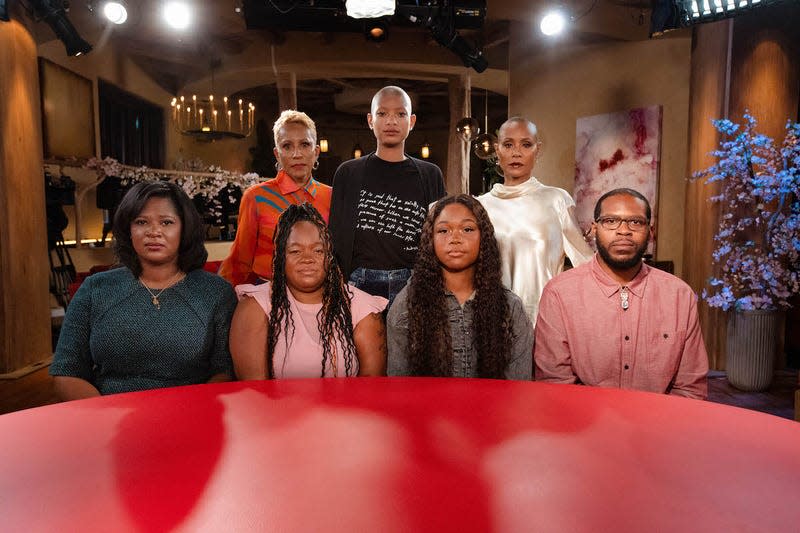Breonna Taylor's Boyfriend Recounts The Night She Was Killed By Police On Red Table Talk

- Oops!Something went wrong.Please try again later.
Kenny Walker, the boyfriend of the late Breonna Taylor, went on Facebook Live’s Red Table Talk to discuss the night his girlfriend was killed in a 2020 botched police raid. Besides the officers on the scene, he was the only person to witness Taylor’s death.
Taylor, who was working as an EMT, was in her apartment with Walker when Louisville Metro Police officers entered the home. They used a no-knock warrant in search of a suspected drug dealer. Walker, who who believed it was an intruder entering, fired a shot. The police responded by firing more than 20 rounds, killing Taylor.
Read more
Walker then explained that police instructed him to come outside. “The only way for her to possibly even get some help is if I go outside,” he stated on the show. “So either they’re gonna shoot and kill me and then come help her, or they’re gonna talk to me and then come help her. Either way I have to come outside.”
The disturbing police video from the incident, which Red Table Talk obtained, showed officers screaming at Walker to walk backwards from the apartment to where officers were standing. In the footage, Walker was sobbing as he asked “What is this about? We’re both just regular working people.”
Through tears, he tells police “My girlfriend is dead.” One cop replies “I don’t give a—keep walking.” Shortly after Taylor was killed, Walker was charged with attempted murder of a police officer and assault. However, the charges were dismissed in 2020 when the case led to an outpouring of national outrage.
In August, four former Louisville police officers —Brett Hankison, Joshua Jaynes, Kyle Meany and Kelly Goodlett--were charged with violating Taylor’s civil rights by federal authorities. Ultimately, Goodlett pleaded guilty to a federal charge of conspiracy. If convicted, she faces up to five years in jail—which simply isn’t enough.

